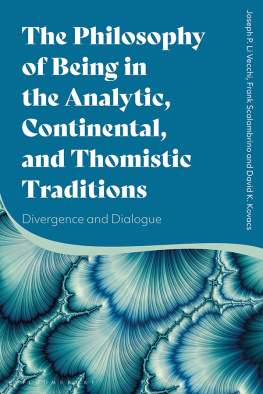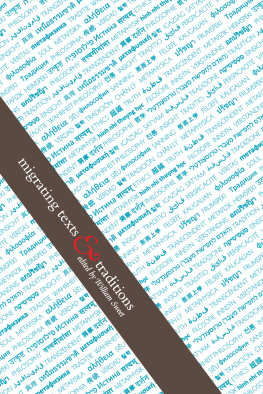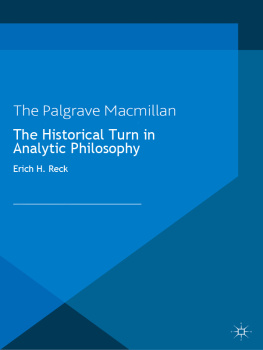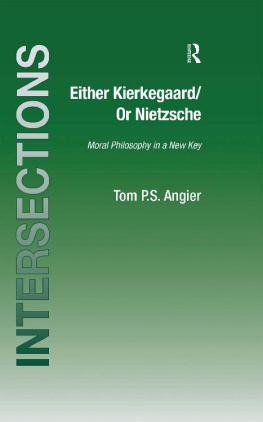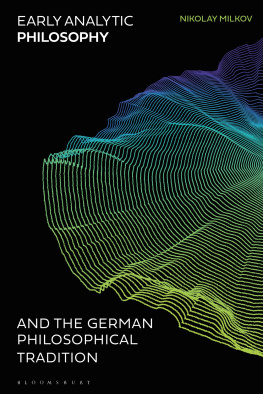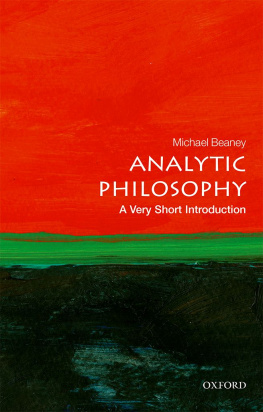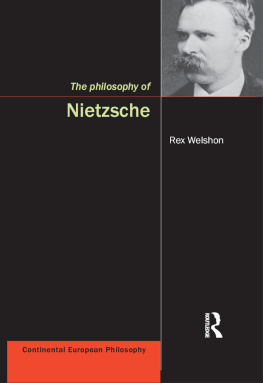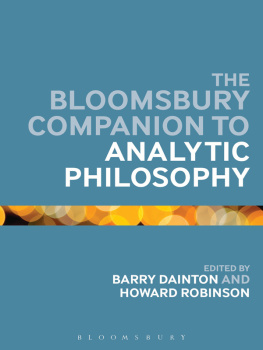Joseph P. Li Vecchi - The Philosophy of Being in the Analytic, Continental, and Thomistic Traditions
Here you can read online Joseph P. Li Vecchi - The Philosophy of Being in the Analytic, Continental, and Thomistic Traditions full text of the book (entire story) in english for free. Download pdf and epub, get meaning, cover and reviews about this ebook. year: 2020, publisher: Bloomsbury UK, genre: Religion. Description of the work, (preface) as well as reviews are available. Best literature library LitArk.com created for fans of good reading and offers a wide selection of genres:
Romance novel
Science fiction
Adventure
Detective
Science
History
Home and family
Prose
Art
Politics
Computer
Non-fiction
Religion
Business
Children
Humor
Choose a favorite category and find really read worthwhile books. Enjoy immersion in the world of imagination, feel the emotions of the characters or learn something new for yourself, make an fascinating discovery.
- Book:The Philosophy of Being in the Analytic, Continental, and Thomistic Traditions
- Author:
- Publisher:Bloomsbury UK
- Genre:
- Year:2020
- Rating:3 / 5
- Favourites:Add to favourites
- Your mark:
- 60
- 1
- 2
- 3
- 4
- 5
The Philosophy of Being in the Analytic, Continental, and Thomistic Traditions: summary, description and annotation
We offer to read an annotation, description, summary or preface (depends on what the author of the book "The Philosophy of Being in the Analytic, Continental, and Thomistic Traditions" wrote himself). If you haven't found the necessary information about the book — write in the comments, we will try to find it.
The Philosophy of Being in the Analytic, Continental, and Thomistic Traditions — read online for free the complete book (whole text) full work
Below is the text of the book, divided by pages. System saving the place of the last page read, allows you to conveniently read the book "The Philosophy of Being in the Analytic, Continental, and Thomistic Traditions" online for free, without having to search again every time where you left off. Put a bookmark, and you can go to the page where you finished reading at any time.
Font size:
Interval:
Bookmark:
The Philosophy of Being in the Analytic, Continental, and Thomistic Traditions
Also available from Bloomsbury
Debating Christian Religious Epistemology, edited by John M. DePoe and Tyler Dalton McNabb
Four Views on the Axiology of Theism, edited by Kirk Lougheed
Free Will and Epistemology, by Robert Lockie
Kants Transition Project and Late Philosophy, by Oliver Thorndike
Wittgenstein, Religion and Ethics, by Mikel Burley
The Philosophy of Being in the Analytic, Continental, and Thomistic Traditions
Divergence and Dialogue
Joseph P. Li Vecchi, Frank Scalambrino, and David K. Kovacs

Joseph P. Li Vecchi dedicates this book to
Domenica Pach Li Vecchi (19272019), mother and lapis lydiae
Frank Scalambrino dedicates this book to:
Immanuel Kant (17241804)
David K. Kovacs dedicates this book to:
The Fordham Philosophical Society
Contents
Joseph P. Li Vecchi would like to acknowledge:
I am grateful for the living tradition of Thomism handed down to me at the Roman Dominican studium, the Pontifical University of Saint Thomas Aquinas, Angelicum, and for the material and spiritual support of my wife Robin.
Frank Scalambrino would like to acknowledge:
I received no outside funding or sabbatical with which to write this book.
David K. Kovacs would like to acknowledge:
Portions of were written with the assistance of a Mark and Kathryn Tomasic Research Fellowship.
Joseph P. Li Vecchi, Frank Scalambrino, and David K. Kovacs
1 What Is the Philosophy of Being?
The philosophy of being is as old as philosophy itself; in fact, depending upon your understanding of philosophy, it may even be older. Thus, as long as there will be philosophy, there will always be the philosophy of being. However, books on the philosophy of being have tended to be written from the point of view of, or privileging, just one tradition from the history of Western philosophy.
So, on the one hand, the three of us thought it would be a valuable contribution to the literature regarding the philosophy of being, if we were to write a book that would specifically speak from the different points of view of three major philosophical traditions.
2 Brief History of the Meaning of the Philosophy of Being
It is widely considered standard that Plato (c. 428348 BC) invented the subject of philosophy, as an academic discipline, that Thales of Miletus (c. 624c. 548 BC) was the first Western philosopher, and that Pythagoras (c. 570c. 495 BC) invented the term philosopher. Yet, despite the philosophical musings of Heraclitus of Ephesus (c. 535c. 475 BC) regarding becoming, the study of the philosophy of being began with the philosophical poetry of Parmenides of Elea (c. 515c. 450 BC).
In fact, Plato devoted an entire dialoguethe Parmenidesto wrestling, explicitly, with the ideas of Parmenides and his follower Zeno of Elea (c. 495c. 430 BC). In addition, Plato also explicitly addresses the philosophy of being in his dialogues: the Republic, the Sophist, and the Timaeus.
What is more, whereas a number of philosophers working in the Continental Tradition still engage with the writings of Parmenides and Heraclitus, at least one major introduction to Thomas Aquinass (12251274) metaphysics portrays Aquinas as responding to what he took to be the Parmenidean problem. Thus, the legacy of Parmenides continues to ripple through the history of Western philosophy, as philosophers working in multiple traditions seek: To say something meaningful about being, about what it is to be or not to be.
Philosophers, however, have had complicated and at times strained relationships with each other over the years. For example, the thought of Plato and Aristotle was refined by thinkers Christian, Muslim, and Jewish, among others, and elements of Greek philosophy and monotheistic theology were at times synthesized, reinterpreted, and harmonized. The consequence has been that in recent years Western philosophy is viewed as having fragmented into different schools or traditions. Strangely, it is not always easy to say what separates the different schools of thought. It isnt that our philosophical interests and inquiries are very different. At least part of what separates these schools from each other is that they have each developed their own ways of speaking, almost developing their own languages at times.
In fact, his followers, known as Thomists, develop and adapt Aquinass thought to subsequent philosophical trends and problems by returning to core tenets of his philosophy of being. Yet, Aquinas was not the last genius in the history of philosophy.
By 1781 Immanuel Kant (17241804) had formulated, what the history of Western philosophy has taken to be, a revolutionary approach to the philosophy of beingthe results of which serious philosophers have had to grapple with ever since. For example, his dictum, Being is not a real predicate, has had reverberations in both the Continental and Analytic Traditions. Interestingly, how predication relates to being is a central issue for each of the traditions discussed in this book. Thus, Being is not a real predicate can also be seen as the point of departure for the genius of the Analytic Tradition, Gottlob Frege (18481925).
3 Brief Clarification regarding Metaphysics and Ontology in the Philosophy of Being
Especially given the above reference to Aristotles celebrated definition of metaphysics as the science of being as being, a terminological clarification may be helpful for readers. Namely, what is the difference between metaphysics and ontology, specifically in regard to the philosophy of being? On the one hand, this terminological clarification may be helpful since early twentieth-century textbooks of philosophy tended to define ontology as the study of being in general. On the other hand, although the distinction tends to be less relevant to the Analytic discussion of being, each of our three traditions may invoke these terms, and in a slightly nuanced way. Therefore, the following two points should be helpful regarding terminology.
First, though some philosophers may treat these terms as equivalent to one another and completely exchangeable, the Continental Tradition considers ontology to be the more precise term of the two. That is, ontology divides into general ontology and specific ontologies. Whereas the former refers to the study of being as being, the specific ontologies are: the cosmological, the theological, and the psychological (since beings can be divided into those three orders). Therefore, the Continental Tradition precisely distinguishes between these terms such that these four, that is, the three specific ontologies and ontology in general, are understood as constituting and containing all that is studied in metaphysics.
Second, according to the Continental Tradition, it was Kants Critique of Pure Reason that finally realized Aristotles ambition to articulate metaphysics as a science. In other words, it was not until Kant formulated his Transcendental Method that metaphysics truly became a sciencea science which the Continental Tradition calls transcendental philosophy. Importantly, then, Kant, in fact, considered the terms ontology and transcendental philosophy as equivalent to one another and completely exchangeable. Thus, even though the terms ontology and transcendental were already in use within the Thomistic Tradition and may have been considered standard in the vocabulary of Scholastic philosophy, Kants philosophy standardized these terms differently for the Continental Tradition.
Next pageFont size:
Interval:
Bookmark:
Similar books «The Philosophy of Being in the Analytic, Continental, and Thomistic Traditions»
Look at similar books to The Philosophy of Being in the Analytic, Continental, and Thomistic Traditions. We have selected literature similar in name and meaning in the hope of providing readers with more options to find new, interesting, not yet read works.
Discussion, reviews of the book The Philosophy of Being in the Analytic, Continental, and Thomistic Traditions and just readers' own opinions. Leave your comments, write what you think about the work, its meaning or the main characters. Specify what exactly you liked and what you didn't like, and why you think so.

